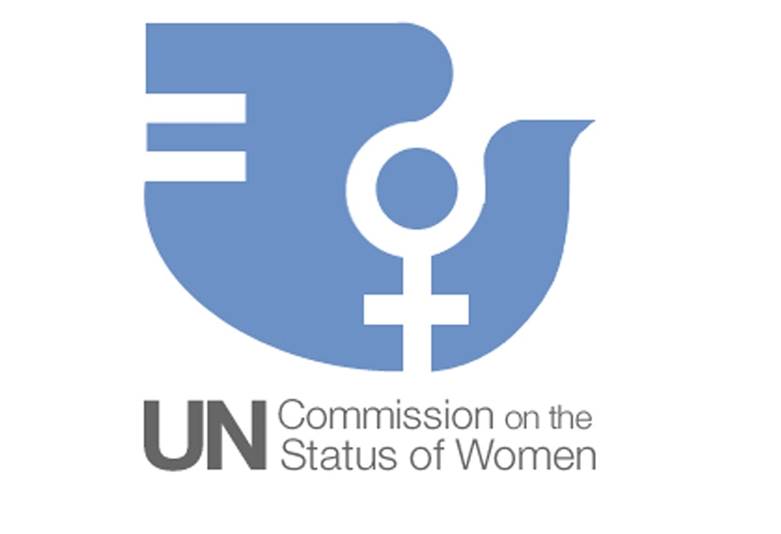Description

Copyright infringement not intended
Context: In an unprecedented move, Iran has been expelled from the United Nation's Commission on the Status of Women (CSW) in a vote on which India abstained. The US had proposed at the UN Economic and Social Council to remove Iran from the panel. India along with 15 other nations abstained from the vote as 29 countries stood in favour of the resolution.
Details:
About:
- The Commission on the Status of Women (CSW) is the principal global intergovernmental body exclusively dedicated to the promotion of gender equality and the empowerment of women.
- A functional commission of the Economic and Social Council (ECOSOC), it was established by ECOSOC resolution 11(II) of 21 June 1946.
- The CSW is instrumental in promoting women’s rights, documenting the reality of women’s lives throughout the world, and shaping global standards on gender equality and the empowerment of women.
- In 1996, ECOSOC expanded the Commission’s mandate and decided that it should take a leading role in monitoring and reviewing progress and problems in the implementation of the Beijing Declaration and Platform for Action, and in mainstreaming a gender perspective in UN activities.
- During the Commission’s annual two-week session, representatives of UN Member States, civil society organizations and UN entities gather at UN headquarters in New York.
- They discuss progress and gaps in the implementation of the 1995 Beijing Declaration and Platform for Action, the key global policy document on gender equality, and the 23rd special session of the General Assemblyheld in 2000 (Beijing+5), as well as emerging issues that affect gender equality and the empowerment of women.
- Member States agree on further actions to accelerate progress and promote women’s enjoyment of their rights in political, economic, and social fields. The outcomes and recommendations of each session are forwarded to ECOSOC for follow-up.
.jpg)
Under its current methods of work, established by ECOSOC resolution 2015/6, at each session the Commission:
- Convenes a ministerial segment to reaffirm and strengthen political commitment to the realization of gender equality and the empowerment of women and girls as well as their human rights, and to ensure high-level engagement and the visibility of the deliberations of the Commission, including through ministerial round tables or other high-level interactive dialogues to exchange experiences, lessons learned, and good practices;
- Engages in general discussion on the status of gender equality, identifying goals attained, achievements made, and efforts under way to close gaps and meet challenges;
- Convenes interactive expert panel discussions and other interactive dialogues on steps and initiatives to accelerate implementation and measures to build capacities for mainstreaming gender equality across policies and programmes;
- Considers one priority theme, based on the Beijing Declaration and Platform for Action and the outcome of the 23rd special session of the General Assembly and linkages to the 2030 Agenda for Sustainable Development;
- Evaluates progress in implementing agreed conclusions from previous sessions as a review theme;
- Discusses emerging issues, trends, focus areas, and new approaches to questions affecting the situation of women, including equality between women and men, that require timely consideration;
- Considers in closed meeting the report of its Working Group on Communications;
- Agrees on further actions for the promotion of gender equality and the empowerment of women by adopting agreed conclusions and resolutions;
- Contributes gender perspectives to the work of other intergovernmental bodies and processes;
- Reports on the aspects relating to gender equality and the empowerment of women of the agreed main theme of the Economic and Social Council, in order to contribute to its work; and
- Celebrates International Women’s Day on 8 March, when it falls within its session.
.jpg)
UN Economic and Social Council (ECOSOC)
- It is one of the six principal organs of UN, responsible for the direction and coordination of the economic, social, humanitarian, and cultural activities carried out by the UN.
- It was established by the UN Charter (1945) and has 54 members.
- Members are elected for three-year terms by the General Assembly. Four of the five permanent members of the Security Council have been continuously re-elected because they provide funding for most of ECOSOC’s budget, which is the largest of any UN subsidiary body.
- Decisions are taken by simple majority vote. The presidency of ECOSOC changes annually.
- India held the inaugural Presidency of ECOSOC (Sir Ramaswami Mudaliar, in 1946). In April 2022, India was elected to four key bodies of the ECOSOC. These four bodies are:
- Committee on Non-Governmental Organisations;
- Commission for Social Development;
- Commission on Science and Technology for Development; and
- Committee for Economic, Social and Cultural Rights.
https://www.business-standard.com/article/international/iran-expelled-from-un-women-s-commission-india-abstains-on-resolution-122121500055_1.html






.jpg)






